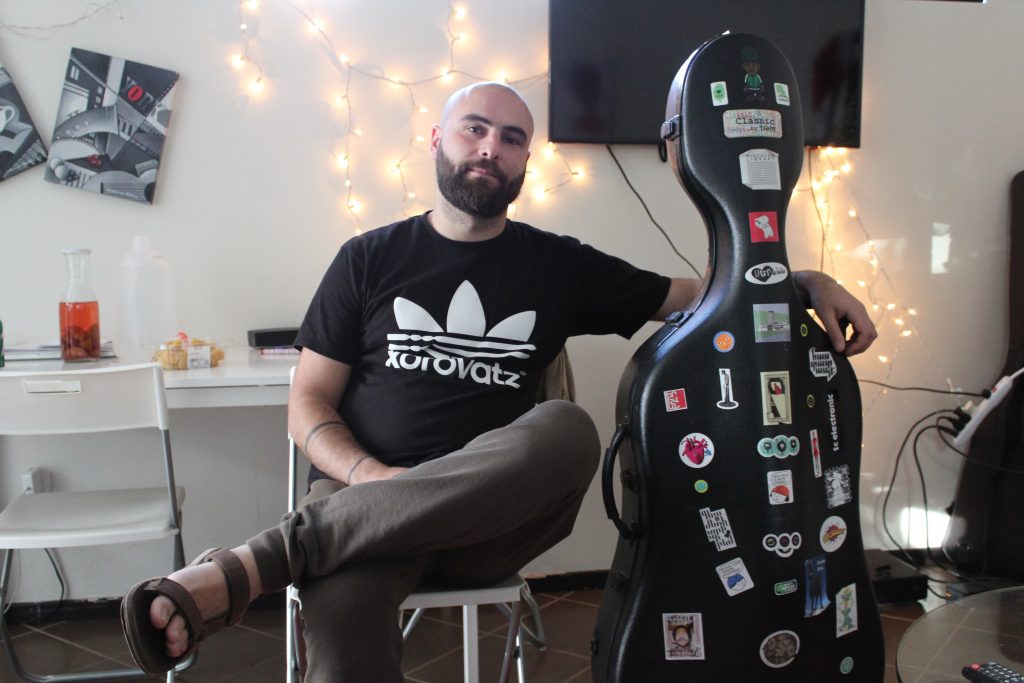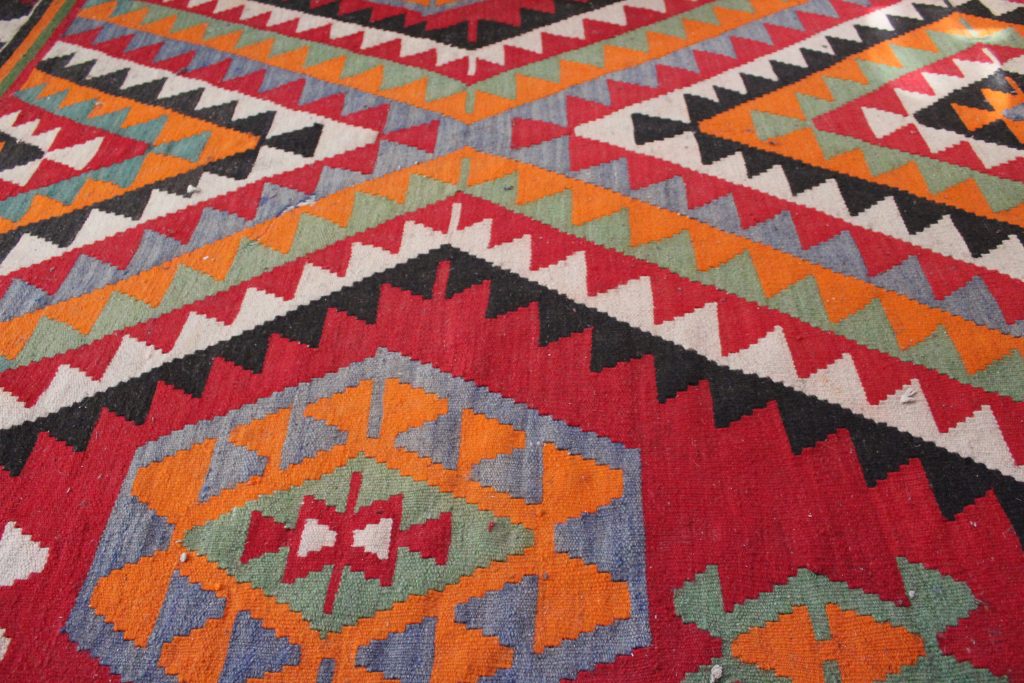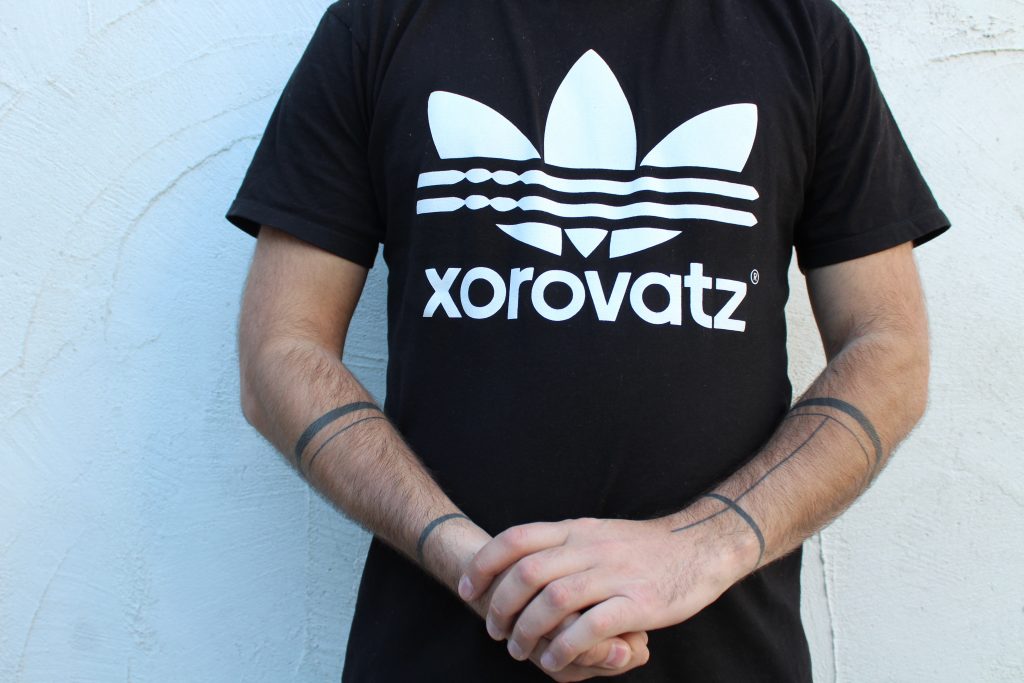Special to the Armenian Weekly
Artyom Manukyan makes music that won’t get out of your head—in a good way. His interaction between listener and performer is a circular response, a reciprocal relationship between the audience and himself. His music transcends verbal communication. His sounds, vibrations, beats, the sound effects, the togetherness of it all makes you feel as though you are becoming the song.
Manukyan has been touring and working on two upcoming albums due for release by the end of the year. First to launch, will be a collaborative album with French electro jazz producer, Dawatile Kiledjian, titled “HILA.” The second will be a solo album called “Alone.”
Manukyan spent five years completing his classical cello education at the State Conservatory, and began playing in jazz bands before joining the 12-piece Avant-Garde Folk Armenian Navy Band in 2006, playing the bass as well as cello.
A native of Yerevan, Manukyan was influenced as a child by both his mother—a classical piano teacher—and his father—a part-time DJ, known as the biggest collector of jazz vinyl in Armenia. “We listened to jazz 27 hours a day in our house. At the time, I didn’t know a cello player who played jazz, so I copied what the bass players were doing,” he says.
At the age of six, Artyom’s mom took him to music school in Yerevan’s third district, or the neighborhood known as Yerord Mas. His mom tried to put him in a piano class at the start of his ever-evolving music career. From a distance, he saw the musician who would eventually become his future cello teacher.
The cellist noticed Manukyan’s gaze and said, “You know what? Everyone comes to learn how to play the piano. Three hundred students here play the piano. Nobody wants to play the cello. Do you want to play the cello?” He didn’t.
“I was almost crying,” says Manukyan, who recalls saying to his mother, “Mom, there’s some man who’s trying to make me play this piece of wood.”
Read Lori Sinanian’s interview with Manukyan for the Armenian Weekly in its entirety below. It was conducted in March 2018.
***
Lori Sinanian: How did the cello proposal make you feel?
Artyom Manukyan: I was sad as hell. I eventually started to play the cello and for the first three or four years, I mean, I was practicing a lot because I was pushed to practice. My teacher was coming over almost every day to our house, so I was practicing, but without love, you know. I wanted to break my instrument sometimes, so I wouldn’t have to practice.
There was a competition in Yerevan for cellist and violin players and with all of this hate I felt for the instrument and not enough practicing, I got second place. So that kind of hit me: If I got second place with feeling hate and not practicing, what if I just practice a little bit and show some love to the instrument?
L.S.: What genre of music do you play?
A.M.: I mean, I don’t know what it is, it’s a blend of so much music. Once I moved to L.A., I got into the techno scene, the dance scene, which really impacted me to perform minimal techno, minimal American techno, Detroit house, music like. It’s really a blend of classical knowledge, jazz knowledge, hip hop, and dance music.
I can’t say that I’m playing a specific kind of genre. I can relate to the jazz scene, but I don’t think I’m a jazz performer. My music is some kind of new genre, new “whatever-makes-me-happy, whatever-makes-people-happy.” You know, that genre.
L.S.: Do you think you give your audience what they want, in other words, because you’re analyzing what they like and what they don’t like?
A.M.: I don’t want to sound like I’m playing for the audience, I don’t want to say that but I definitely have some people who always come to see me, and are waiting for something from me. I mean, I create whatever I like—it’s not like they tell me what to play.
Recently, I was playing at the Chevy Chase country club. I was playing a couple of solo tunes and then people came to me and said: “All of your shows have been cool, but this one, this particular tune was killer.” I had about 25 people tell me that. That means the direction for my next solo album needs to be this way.
During that same performance, there was a choreographer from a dance ensemble from Armenia there. She came and asked if she can use my tunes for her dance, I was like, “Dance? But it’s the saddest tune in the world,” And so they’re currently waiting for me to send them the tune so they can dance to it.
The genre for my next solo album is a little bit dark, but not a hopeless dark. It’s with a good horizon with hope, experimental but with grooves—dark grooves, but still groovy. It won’t be a sad cello album, but it’ll definitely have a mood, you know?
L.S.: You’re from Yerevan originally, and now you’re living an L.A. life. What’s different for you between the two environments?
A.M.: The one thing I can say, with a smile on my face, is that I kind of bring what I experienced in Yerevan to L.A. I feel like a part of this city now.
The first year wasn’t like that. It was a little depressing. A little bit depressing because I didn’t know a lot of people, I didn’t work so much, I didn’t play so much, I didn’t hang out so much. So that was a little frustrating. But then it kind of elevated because of work and playing, and the word of mouth of my work and playing.
I’m not a very social of a person, especially with American people, so that’s why it took me a little bit longer. It’s my seventh year here now and I can tell you that I’m fully in the L.A. scene, like one of those serious cats in the L.A. scene. I’ve been playing with so many people in the past few years starting with Ricky Martin, Darryl “DMC” McDaniels (of RUN-DMC), Everlast, Flying Lotus, Daedalus, Tigran Hamasyan, Odesza, Coldplay, Jimmy Kimmel, Natasha Bedingfield, Macy Gray. Now I’m pushing my own stuff which is much better for me.
L.S.: What do you like most about being a solo artist?
A.M.: First of all, you don’t depend on anybody and nobody depends on you. It’s just you versus you, so if you suck, you suck.
With solo projects, it’s just me and my instrument—me and my imagination. There’s nobody to judge me for what I play. I have time to explore my instrument. I can plan to do something and once I hit the stage, I start with the first tune, notice the mood of the audience and off of their reactions, I have the ability to completely change what I am playing. That is the advantage of being solo artist. It’s endless… Music is endless.
L.S.: What advice do you have for people in L.A. who are pushing to be recognized and that have a great talent?
A.M.: If you’re here and you’re doing cool stuff, I don’t think you’ll be unheard of. “People skills” in America are one of the most important things. You can be an intermediate musical but have this great, outgoing personality and you’ll get more gigs than a better player who doesn’t necessarily possess those people skills.
Be honest, be human, because music is a relationship, it’s a language. If you’re faking it, it’s obvious. Even if it’s easy music, be honest. Like kef (party) time during Armenian weddings, the performers are playing honest music, and we like it. Take someone playing an oud at weddings—he plays it well, and he plays honest, because he wants to be a kef time oud player. That’s why I tend to respect people who play weddings, because they don’t aim to be performing at say Elton John’s level. Performing at weddings and in restaurants is a genre that a lot of people don’t know, and therefore, can’t do. It’s a difficult circle to perform in. People perform from like 8 p.m. to 2 a.m., nonstop. The amount of songs… it’s crazy. I play for an hour and I’m resting for a full day. These people play Thursday through Sunday… I have a lot of respect for them.
L.S.: What do your tattoos mean?
A.M.: Nothing. My tattoo’s mean nothing, though, they are inspired by European DJs. They (the DJs) have this new movement of minimalist music, minimalist tattoos, minimalist clothing, like a black t-shirt, black jeans all the time, you know.
I went to a couple of festivals and had a couple of visions of how I want to look, because in Yerevan while studying at the State Conservatory, which is a pretty conservative university—meaning no hippies, no yuppies, no rockers. The teachers really focused on classical music… I wasn’t. I was listening to Snoop Dogg, so I was always in baggy jeans. I always have that fight in me with how to look.
L.S.: Are you going on tour this coming year?
A.M.: I’m going to Bangladesh for two weeks at the end of March, then when I come back, I’ve signed a contract with Gretchen Parlato, a very well known jazz singer. We’ll be going to Mexico, Boston, Korea, New Zealand and Australia from April until the beginning of June. When I return from tour, I’ve confirmed to tour on July 21 to go to Lisbon, Portugal with my trio to play at Gulbenkian Foundation. In the meantime, while in Europe, I’ll be finding more gigs. Eventually, I’ll go to France to meet with my friend Dawatile Kiledjian to finish a project called “HILA.” And then come home and record my solo album so that’ll be finished by the end of the year.
L.S.: Why HILA?
A.M.: HILA is a project with my friend Dawatile Kiledjian from Leon, an amazing producer and keyboard player. The idea of HILA is actually his (Dawatile’s) words. “HILA” can mean “Hi, L.A.,” “Be high in L.A.” “Hi Armenians, in L.A.,” or in a Jamaican accent, “Hila man!” We’ve added all of these descriptions.
“HILA” is a project that we pretty much want to work on for many years. Maybe 10 years ago, both in Armenia and France, while I was touring, Dawatile came to Armenia and we collaborated, he recorded some folk music and I helped him do some projects in Armenia. We have always been friends, we have always wanted to do something, but we never had time, distance was partly why. Last year, I was telling him that I need to do something new, and I pretty much cancelled every gig in December and kept this one gig on Dec. 20 at the Blue Whale in Downtown Los Angeles.
I called Davit, he came to my studio, and we closed my studio door for 20 days and came out with seven or eight songs, which we performed that day. Those songs are now in post-production for an album, which will hopefully come to life in the summer. It’s just a little bit hard to meet in the studio. He’s in France, I’m here, he sends something, I send something back, he says no, I change something, another week passes… And so that takes time.
We have a residency coming up in Leon, it’s supposed to be during February of next year, but I think it’s moving to November of this year. We also received confirmation from Tigran Hamasyan that he’s interested in collaborating if the dates work with him. So it will be HILA featuring Tigran Hamasyan.
***
Artyom Manukyan and his group will be performing a number of shows in April and will be on tour for two months with Melody Gardot. Some of his upcoming shows include:
- April 3: Baked Potato, Los Angeles – https://www.thebakedpotato.com/events/artyom-manukyan/
- April 7: The Roc, San Francisco – https://www.eventbrite.com/e/artyom-manukyan-dawatile-hila-tickets-44090618226
The post Artyom Manukyan on the Ups and Downs of L.A.’s Music Scene and His Undying Respect for Wedding Bands appeared first on The Armenian Weekly.
Source: Armenian Weekly
Link: Artyom Manukyan on the Ups and Downs of L.A.’s Music Scene and His Undying Respect for Wedding Bands



